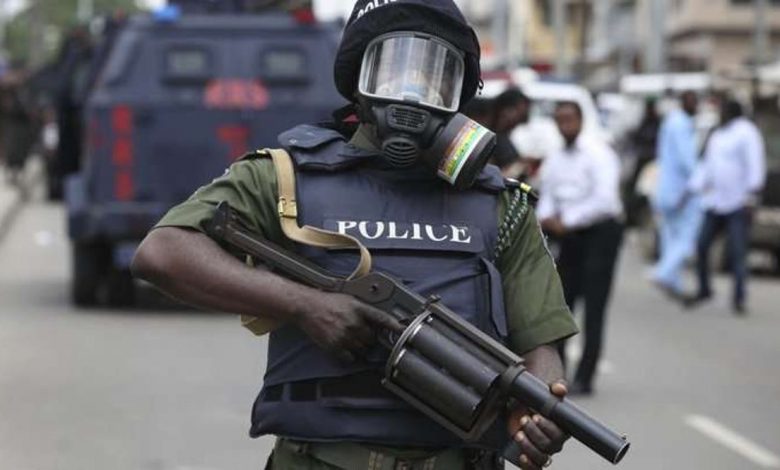COVID-19 Lockdown: Security Personnel Kill 18 Nigerians, Torture 33– NHRC

No fewer than 18 Nigerians were killed by security personnel during the first lockdown from March 31 to April 13, according to the National Human Rights Commission (NHRC).
In a statement on Wednesday, Mr Tony Ojukwu, the Executive Secretary of NHRC, noted that while coronavirus, the reason for the lockdown, killed 11 people, human rights violations by security officials claimed more lives.
“There were eight documented incidents of extra-judicial killing leading to 18 deaths. Out of this number, 12 deaths were recorded in Kaduna State.
“Abia State also recorded two deaths arising from two incidents; while Delta, Niger, Ebonyi and Katsina states recorded one death each.
“Whereas COVID-19 has led to the death of about 11 patients to date (April 14), law enforcement agents have extra-judicially executed 18 persons to enforce the regulations,” the commission said.
“This speaks volumes of the protocols and rules of engagement for our law enforcement as well as the efficiency level and capacity of law enforcement agents to deal with the civil population.
“It’s a sheer display of impunity and reckless disregard for human life in law enforcement by security personnel,” it stated.
The report further showed that out of the 18 deaths, the Nigeria Correctional Service was responsible for eight deaths while the Nigeria Police Force was responsible for seven deaths.
The Nigeria Army was responsible for two deaths while the Ebonyi State Task Force on Covid-19, Afikpo South Local Government , was responsible for one death.
Other types of violations recorded within the period include 33 incidents of torture, inhumane and degrading treatment.
There were also 27 incidents of violation of right to freedom of movement, unlawful arrest and detention and 19 cases of seizure and confiscation of properties.
The report also recorded 13 incidents of extortion, four incidents of sexual and gender-based violence, and one incident of discrimination in the distribution of food items.
According to the report, Nigeria Police Force accounts for about 90 per cent of the total cases of violations followed by the Nigerian Army and Nigeria Correctional Service and other non-state actors.
Incidents of violations represent about 29 per cent of the complaints have been resolved by different security agencies.
The report further showed that the various human rights violations recorded during the period arose as a result of excessive or disproportionate use of force.
Other factors were abuse of power, corruption and non-adherence to international and national human rights laws and best practices by law enforcement agents, it added.
It showed that a total of 105 complaints were monitored and received from 24 out of the 36 states of the federation and the Federal Capital Territory.
It said other states from where complaints were received were Abia, Adamawa, Akwa Ibom, Bayelsa, Benue, Cross Rivers, Ebonyi, Edo, Enugu, Ekiti and Delta State.
Gombe, Imo, Kaduna, Katsina, Kogi, Kwara, Lagos, Nasarawa, Niger, Ogun, Osun, Plateau and Rivers States also recorded violations.
Out of 105 complaints and incidents of human rights violation received and documented within the initial lockdown period, Lagos State has the highest recorded cases with 28 cases.
This is followed by the FCT with 10 recorded cases.
Enugu State recorded nine incidents followed by Abia, Delta and Nasarawa states which recorded seven, six and five incidents respectively.
Rivers State also recorded five incidents of human rights violation while Imo recorded four incidents.
According to the report, Ekiti, Akwa Ibom, Gombe, Kaduna and Ebonyi states recorded three incidents each, while Kwara, Osun, Benue and Niger states recorded two incidents each.
Edo, Adamawa, Ogun, Cross River, Kogi, Bayelsa, Katsina and Plateau state recorded one incident each.
Support Our Journalism
There are millions of ordinary people affected by conflict in Africa whose stories are missing in the mainstream media. HumAngle is determined to tell those challenging and under-reported stories, hoping that the people impacted by these conflicts will find the safety and security they deserve.
To ensure that we continue to provide public service coverage, we have a small favour to ask you. We want you to be part of our journalistic endeavour by contributing a token to us.
Your donation will further promote a robust, free, and independent media.
Donate HereStay Closer To The Stories That Matter




